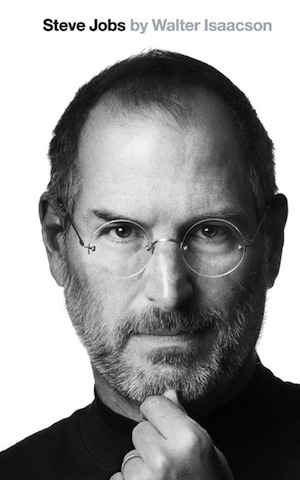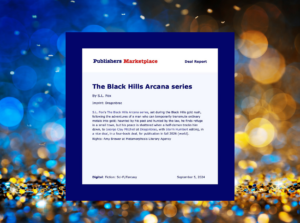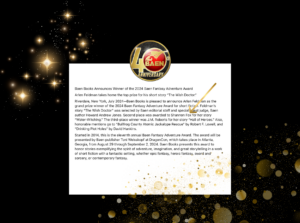Steve Jobs by Walter Isaacson
In Steve Jobs: The Exclusive Biography, Isaacson provides an extraordinary account of Jobs’ professional and personal life. Drawn from three years of exclusive and unprecedented interviews Isaacson has conducted with Jobs as well as extensive interviews with Jobs’ family members and key colleagues from Apple and its competitors, Steve Jobs: The Exclusive Biography is the definitive portrait of the greatest innovator of his generation.

I struggled with this book at first, as I do with almost all biographies. Unless I’m doing research for something, I can feel way too bogged down by all the details.
There was also the matter of how Isaacson approached the biography of Steve Jobs. Jobs was obviously a very flawed human being. I think the introduction should have been a little longer, to give the reader more of a warm-up for (the uninitiated) how not nice of a guy Jobs could be at times. I knew he wasn’t a super well liked person, but I didn’t know the full extent of it and not being adequately prepared for it made me struggle to keep reading because I just couldn’t root for him for the longest time.
There’s a passage at the very end of the book from Jobs’ wife that I think should have been somewhere in the introduction. She summed up Steve and Isaacson’s treatment of his life in this biography really well:
“Like many great men whose gifts are extraordinary, he’s not extraordinary in every realm…he doesn’t have social graces, such a putting himself in other people’s shoes, but he cares deeply about empowering humankind, the advancement of humankind, and putting the right tools in their hands.”
For its flaws, I really began to like the book after we got to the part about Pixar. I think the biography started to hit its stride there, as Jobs did in his life. And the rest of the book was more interesting to me since that is roughly the time period I lived through.
I also thought the epilogue to the book was superb. Absolutely superb.
I definitely walked away with a greater understanding of Jobs and how his vision informed Apple and all of the products I loved. End-to-end integration wasn’t a term I was familiar with before this book, but I really resonated with that idea.
I absolutely loved this quote from Steve Jobs himself, as he summed up his legacy:
“What drove me? I think most creative people want to express appreciation for being able to take advantage of the work that’s been done by others before us. I didn’t invent the language or mathematics I use. I make little of my own food, none of my own clothes. Everything I do depends on other members of our species and the shoulders that we stand on. And a lot of us want to contribute something back to our species and to add something to the flow. It’s about trying to express something in the only way that most of us know how-because we can’t write Bob Dylan songs or Tom Stoppard plays. We try to use the talents we do have to express our deep feelings, to show our appreciation of all the contributions that came before us, and to add something to that flow. That’s what has driven me.”



